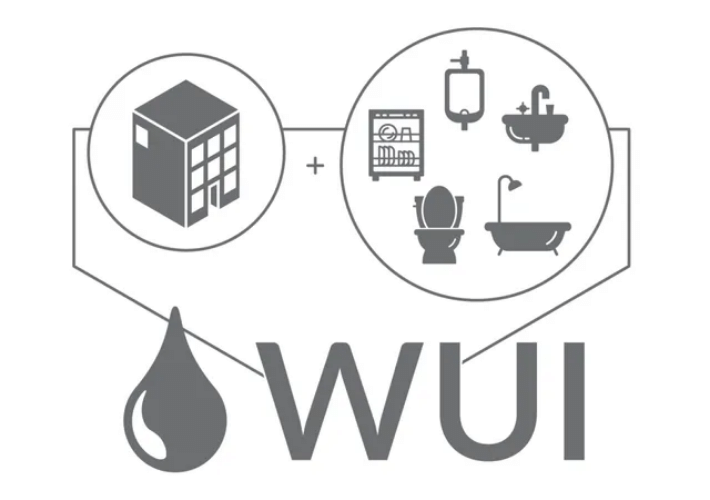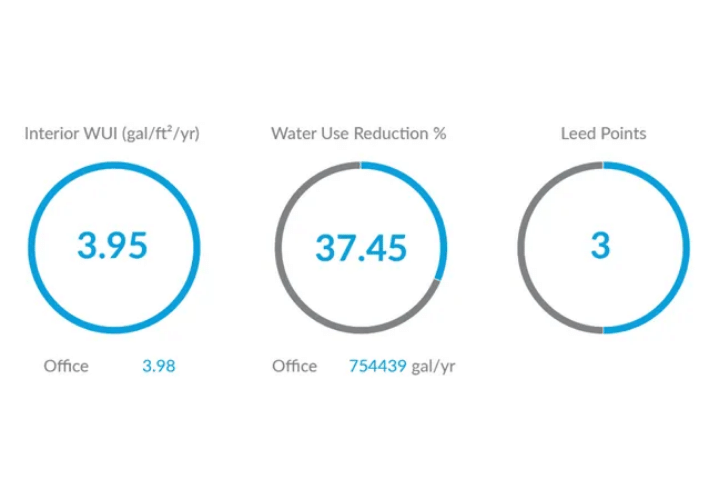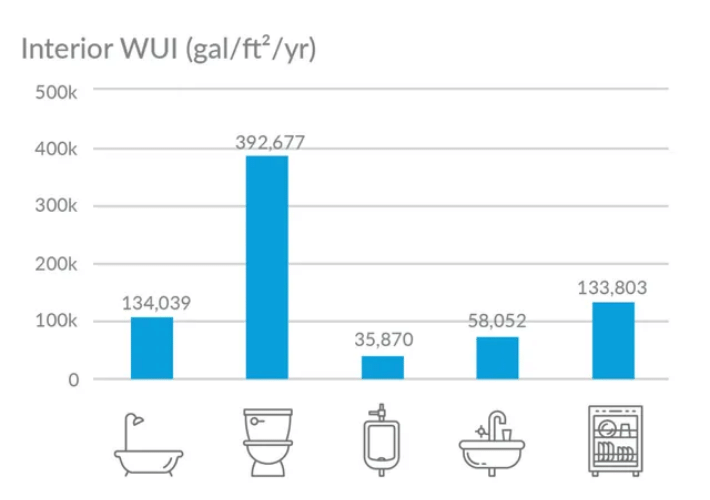Table Of Contents
Table Of Contents

cove.tool automates the interior Water Use Intensity (WUI) calculation for your building and the impact of low flow fixtures and potential number of LEED points it can yield. Here are 5 things you need to know about the water tool to best integrate the new page into your early-stage analysis process.
What is Water Use Intensity (WUI)?
The Water Use Intensity (WUI) expressed in gallons per square foot per year (gal/ft²/yr), is used to determine how much water your building will require during the years of occupation. This calculation is only done for interior water use and uses baseline and WaterSense values for the 5 standard water fixtures as specified in LEED’s Indoor Water Use Category. cove.tool uses the low and high-performance values multiplied by the square footage of your project to produce a preliminary Water Use Intensity (WUI) and possible Water Use Intensity (WUI) Percent Reduction.

LEED Points
Preliminary LEED point summary. As this tool only compares two performance rates, low [baseline] performance and high [WaterSense fixtures] performance, there are only two possible performance outcomes. Either all your fixtures meet baseline performance standards and the project earns 0 LEED points because it was not able to reduce on baseline performance, or all your fixtures are WaterSense labeled and offer a 37.45% water use reduction from baseline and thus earning you 3 LEED points.
The Breakdown
Another feature cove.tool offer as part of the water use page is the Interior Water Use Breakdown Graph. This graph demonstrates which of the five fixture categories (showers, toilets, urinals, kitchens, and lavatories) dominate your building’s water use based on building type and area. This information is best used in every phase of design when selecting fixtures is crucial to conserving energy and water use, thus resulting in a better-performing building.

